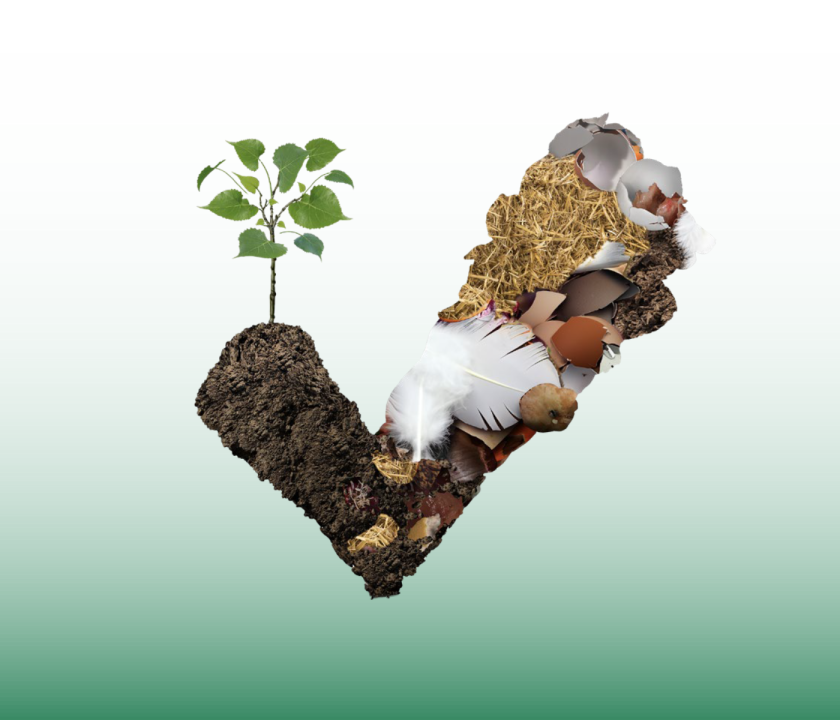The circular economy bases its principles on the longer use of raw materials within a production system to make it more sustainable.
In other words, there is an efficient use of raw materials that allows them to be reused and/or recycled on a constant basis so as not to generate a large amount of waste.
According to the European Parliament, the circular economy aims to reduce waste to a minimum.
Therefore, when a product reaches the end of its life, its materials are kept within the economy whenever possible thanks to recycling. Leading to the fact that they can be productively used again and again, thus creating additional value.
In this type of economy, the following factors are related:
- Raw materials.
- Residual waste.
- Recycling.
- Collection.
- Reuse/Repair of products.
- Distribution.
- Reprocessing.
- Design.
The circular economy model is widely applied in agriculture.
However, in an industry such as the poultry industry, where chicken is the second most consumed meat in most countries and eggs are a daily food in people’s diets due to their protein content and low cost, around 12 million tons of excrement are generated each year in countries such as Spain alone.
- This translates into a problem due to the lack of storage and disposal of this waste, as well as the emission of greenhouse effect gases, which is considered a contribution of 8% by the world livestock sector.
Therefore, it is very important to apply the circular economy to make the best use of the waste generated. This allows us to be more environmentally friendly, making the industry more sustainable, generating added value to what is considered “waste”.
These excrements are accumulations of feces, feathers, food residues, litter, among others that depending on the production system of origin can be called poultry manure if it comes from laying hens or broiler manure if it comes from broilers.
However, if these wastes are not well handled, they become a major source of contamination due to the number of contaminating molecules they release, such as non-protein nitrogen in the form of ammonia, phosphorus, hydrogen sulfide, minerals and material not digested by the birds.
- This situation affects not only the environment but also the direct workers of the farms and the surrounding communities, becoming a public health problem.
Therefore, one of the current management of poultry manure to avoid the above is to work under the concept of circular economy in which these wastes are used either as fertilizer for crops, compost or for energy production purposes, which is considered a benefit for poultry systems, agribusiness, man and the environment.
Quiñones (2017), states that processed poultry manure positively affects agricultural production and thus the supply of food to the population due to improvements in the nutritional content of crops and increased productivity.
- This leads to guarantee food security thanks to the supply of products of high nutritional value for humans.
In addition, more productive crops and harvests reduce the need to increase the agricultural area and consequently there is greater soil conservation.
In conclusion, the process of transformation of poultry manure to be used in different areas of the agricultural sector is a highly effective measure that reduces pollution through its use in other production systems, as well as a reduction of waste and an economic benefit.
SECONOV – DRYING OF POULTRY MANURE: Reducing emissions and improving poultry productivity
SECONOV is an innovative product from Zucami that is making a significant contribution to more sustainable poultry production.
Using the heat energy of the birds themselves, SECONOV – DRYING OF POULTRY MANURE offered by Zucami, allows:
This product is the result of a drying process of poultry manure that allows obtaining a high-quality organic fertilizer. By using SECONOV in poultry production, a more efficient management of the waste generated by the poultry activity is promoted and, therefore, the environmental impact is reduced.
ZUCAMI has developed a treatment system that dries 85% of poultry manure and eliminates odors, insects and ammonia-derived gases: the Seconov system.
In addition, by using this product, a circular economy is encouraged, and the efficient use of natural resources is promoted, as manure becomes a valuable resource instead of being treated as waste.
Looking for a way to improve sustainability on your farm? Try Zucami’s SECONOV and turn poultry manure into a valuable resource.
PDF
